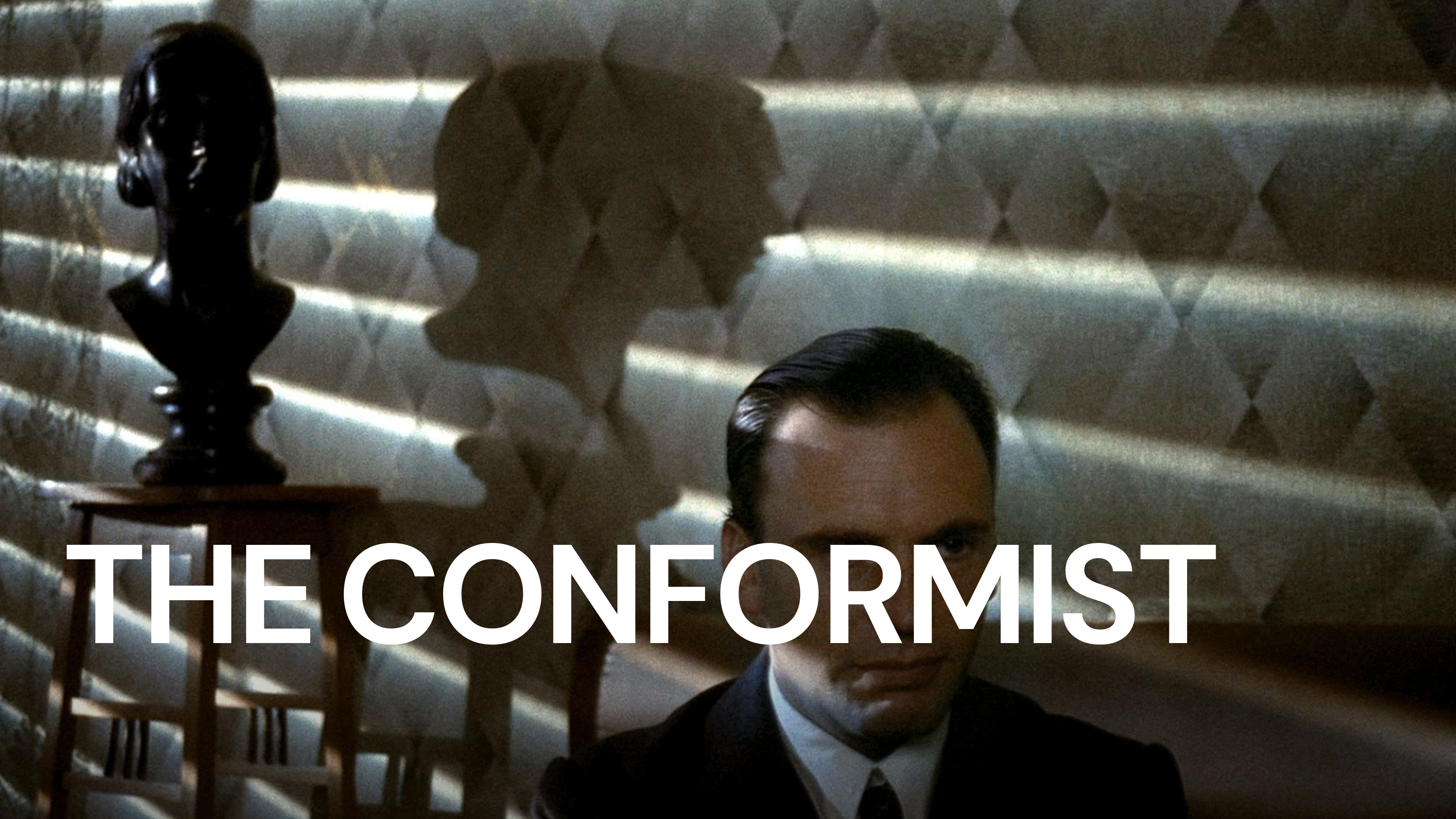
The Conformist is a critically acclaimed and widely celebrated movie, hailed for its stellar performances, stunning visuals, and thought-provoking narrative. Directed by the legendary Italian filmmaker Bernardo Bertolucci, this 1970 masterpiece has become an iconic piece of cinema. Set in 1930s fascist Italy, The Conformist tells the gripping story of Marcello Clerici, a man torn between his conformity to societal norms and his desire for individuality. As he is tasked with assassinating his former professor, Marcello’s journey becomes a thrilling exploration of political turmoil, personal identity, and the consequences of conformity. With its powerful themes, captivating storytelling, and impressive cinematography, The Conformist continues to captivate audiences around the world, cementing its status as a cinematic gem. Let’s dive into 42 fascinating facts about this iconic film.
Key Takeaways:
- “The Conformist” is a visually stunning Italian film set in the 1930s, exploring themes of identity, conformity, and the dangers of blind loyalty within a fascist regime. It continues to captivate audiences with its thought-provoking storytelling and remarkable performances.
- The Conformist” is a timeless masterpiece that challenges societal norms, delves into the complexities of desire and guilt, and showcases the power of individual agency. Its impact on cinema and relevance to contemporary society make it a must-watch for any movie enthusiast.
The Conformist was directed by Bernardo Bertolucci.
The Conformist is a 1970 Italian drama film, directed by the renowned filmmaker Bernardo Bertolucci. He is known for his visually stunning and politically charged films.
The movie is based on a novel.
The Conformist is based on the novel of the same name written by Alberto Moravia. The novel was published in 1951 and is considered a classic of Italian literature.
The film is set in 1930s Italy.
The Conformist is set in Italy during the 1930s, a period marked by the rise of Benito Mussolini and the fascist regime. The film captures the political and social climate of the time.
The protagonist is a government official.
The main character, Marcello Clerici, is a government official who is sent on a mission to assassinate his former professor, an anti-fascist intellectual. Marcello’s internal conflicts and struggles form the core of the film.
The film explores themes of identity and conformity.
The Conformist delves into the themes of identity and conformity, as Marcello grapples with his own desires for acceptance and his role in the fascist system. The film asks thought-provoking questions about the nature of conformity and the sacrifices one is willing to make to fit in.
The cinematography is visually striking.
The Conformist is lauded for its impressive cinematography, with masterful use of lighting, composition, and color palettes. The visual style of the film greatly contributes to its overall impact and aesthetics.
The film was critically acclaimed.
Upon its release, The Conformist received widespread critical acclaim for its storytelling, visuals, and performances. It has since become a revered film in both Italian and international cinema.
The movie was nominated for Academy Awards.
The Conformist was nominated for several Academy Awards, including Best Adapted Screenplay and Best Art Direction. Although it didn’t win any Oscars, the nominations solidified its status as a significant cinematic achievement.
The film showcases political symbolism.
Bertolucci uses strong political symbolism throughout the movie to convey deeper meanings. From the visual motifs to the characters’ actions, the film is rich with political allegories.
The Conformist influenced future filmmakers.
The Conformist has had a lasting impact on the world of cinema and has served as an inspiration for many filmmakers. Its contributions to the art of filmmaking continue to be celebrated and studied to this day.
The movie offers a unique perspective on fascism.
Through the lens of Marcello’s character, The Conformist offers a nuanced and complex exploration of fascism. It goes beyond the surface-level portrayal of evil and delves into the psychology and motivations of those who conform to oppressive systems.
The Conformist features standout performances.
The film boasts stellar performances from its cast, with Jean-Louis Trintignant delivering a captivating portrayal of Marcello Clerici. The ensemble cast delivers powerful and memorable performances that elevate the film’s impact.
The Conformist is considered an art-house classic.
The film’s artistic and intellectual depth, combined with its remarkable craftsmanship, has solidified its status as an art-house classic. It continues to be studied and appreciated by cinephiles and scholars alike.
The film explores sexual politics.
Sexual politics play a significant role in The Conformist, exploring themes of repression, homosexuality, and power dynamics. These aspects add another layer of complexity to the narrative and characters.
The movie challenges the notion of normalcy.
The Conformist questions the concept of normalcy and challenges societal standards of what it means to fit in. It prompts viewers to reflect on the dangers of blind conformity and the importance of staying true to oneself.
The film’s soundtrack enhances the mood.
The Conformist features an evocative soundtrack composed by Georges Delerue. The music adds depth and emotion to the scenes, further immersing the audience in the film’s world.
The Conformist was critically reassessed in later years.
While the film received immediate critical acclaim upon its release, it was further analyzed and appreciated in the years that followed. Scholars and critics recognized its profound impact on cinema and the relevance of its themes.
The movie explores the concept of guilt.
The Conformist delves into the concept of guilt, as Marcello grapples with his past actions and the consequences of his choices. The exploration of guilt adds a psychological dimension to the narrative.
The film’s set designs are meticulous.
Bertolucci pays great attention to detail in the film’s set designs, accurately recreating the 1930s era. The meticulousness of the sets adds an authentic and immersive quality to the film.
The Conformist is known for its surreal sequences.
The film incorporates surreal and dreamlike sequences that add an otherworldly quality to the narrative. These sequences provide a deeper insight into Marcello’s psyche and add to the overall atmospheric tone of the movie.
The Conformist was a box-office success.
The Conformist performed well commercially, further solidifying its status as a significant cinematic achievement. Its popularity contributed to its lasting legacy in the world of cinema.
The film examines the loss of innocence.
The Conformist explores the theme of the loss of innocence, as Marcello embarks on a journey that tests his moral compass and forces him to confront his own actions. It presents a poignant portrayal of personal growth and self-reflection.
The Conformist has a narrative structure with flashbacks.
The film employs a narrative structure that incorporates flashbacks, allowing the audience to piece together Marcello’s backstory and understand the factors that shaped his ideology and behavior.
The film’s costumes are meticulously designed.
Bertolucci pays careful attention to the costumes in The Conformist, ensuring they accurately reflect the time period and the character’s social status. The costumes contribute to the film’s overall visual richness and authenticity.
The Conformist explores the concept of desire.
Desire is a recurring theme in The Conformist, as Marcello grapples with his desires for acceptance, power, and romantic relationships. The exploration of desire adds depth to the narrative and the character development.
The Conformist influenced subsequent political thrillers.
The Conformist’s innovative approach to the political thriller genre influenced numerous films that came after it. Its impact can be seen in the works of directors such as Francis Ford Coppola and Martin Scorsese.
The Conformist is visually symbolic.
Bertolucci uses visual symbolism throughout the film to convey deeper meanings and themes. The visual motifs and metaphors add layers of interpretation and enhance the storytelling experience.
The movie was initially controversial.
When it was first released, The Conformist sparked controversy due to its sensitive subject matter and political implications. However, it also garnered praise for its artistic excellence and thought-provoking nature.
The Conformist showcases Bertolucci’s artistic vision.
The film is a testament to Bernardo Bertolucci’s unique artistic vision and his ability to craft compelling narratives. The Conformist solidified his reputation as one of the most influential filmmakers of his time.
The film explores the power dynamics within relationships.
The Conformist delves into the dynamics of power within interpersonal relationships, examining the ways power can be wielded and manipulated. These power dynamics further complicate the characters’ motivations and actions.
The Conformist was praised for its screenplay.
The film’s screenplay, adapted by Bernardo Bertolucci himself, received widespread acclaim for its nuanced dialogue and well-developed characters. The screenplay effectively brings the novel’s themes to life on the screen.
The Conformist emphasizes the importance of individual agency.
The film serves as a reminder of the importance of individual agency and the responsibility each person has in shaping their own destiny. It raises questions about personal accountability and the repercussions of one’s choices.
The film incorporates elements of political thriller and psychological drama.
The Conformist seamlessly blends elements of the political thriller genre with psychological drama, creating a compelling and introspective narrative that keeps viewers engaged from start to finish.
The movie explores the nature of betrayal.
Betrayal is a central theme in The Conformist, as Marcello’s loyalty is tested and he must make difficult decisions that impact the lives of those around him. The exploration of betrayal adds to the film’s suspense and emotional depth.
The Conformist challenges traditional gender roles.
The film challenges traditional gender roles and expectations, with complex female characters who defy societal norms. It offers a nuanced portrayal of women’s autonomy and agency in a patriarchal society.
The film highlights the dangers of blind loyalty.
The Conformist serves as a cautionary tale about the dangers of blind loyalty, showing the negative consequences of unquestioningly following an oppressive system or ideology.
The Conformist’s themes are still relevant today.
Despite being set in the 1930s, The Conformist’s themes of conformity, political manipulation, and personal responsibility remain pertinent in contemporary society. The film continues to resonate with audiences of all generations.
The Conformist is hailed as one of Bertolucci’s masterpieces.
The Conformist is often regarded as one of Bernardo Bertolucci’s cinematic masterpieces, showcasing his exceptional storytelling skills and artistic vision. It remains a significant entry in his impressive filmography.
The film’s editing is seamless.
The Conformist features seamless and precise editing, ensuring a smooth flow between scenes and enhancing the film’s overall rhythm and pacing.
The Conformist explores the concept of moral ambiguity.
The film challenges conventional notions of morality and dives into the murky waters of moral ambiguity. It raises difficult questions about right and wrong, blurring the lines between hero and villain.
The Conformist is a visually stunning movie.
The film’s visual aesthetics, with its beautifully composed shots and evocative imagery, contribute to its status as a visually stunning piece of cinema.
The Conformist continues to captivate audiences.
Even after several decades since its release, The Conformist continues to captivate audiences with its thought-provoking themes, impeccable craftsmanship, and remarkable performances.
These 42 facts about the movie The Conformist only scratch the surface of its brilliance. It is a film that must be seen and experienced to truly appreciate its impact on cinema and its lasting relevance. Whether you are a fan of political dramas or simply appreciate masterful storytelling, The Conformist is a must-watch for any cinephile.
Conclusion
The movie “The Conformist” is a masterpiece of Italian cinema and a must-watch for film enthusiasts. Through its captivating storytelling, stunning cinematography, and brilliant performances, the film explores themes of identity, conformity, and political turmoil. With its deep symbolism and thought-provoking narrative, “The Conformist” continues to resonate with audiences, making it an enduring classic. Whether you’re a fan of Italian cinema or simply appreciate thought-provoking films, “The Conformist” is definitely worth adding to your watchlist.
FAQs
1. When was “The Conformist” released?
“The Conformist” was originally released in Italy in 1970.
2. Who directed “The Conformist”?
The film was directed by the renowned Italian filmmaker Bernardo Bertolucci.
3. Is “The Conformist” based on a book?
Yes, “The Conformist” is based on the 1951 novel of the same name by Alberto Moravia.
4. What is the film about?
“The Conformist” tells the story of Marcello Clerici, a young man working for the Fascist government in Italy during the 1930s. As he carries out his assignments, Marcello becomes entangled in a web of political intrigue and betrayal.
5. Are there any notable performances in the film?
Yes, Jean-Louis Trintignant delivers a captivating performance in the lead role of Marcello Clerici. Other notable cast members include Dominique Sanda and Stefania Sandrelli.
6. Is “The Conformist” available for streaming?
You can check popular streaming platforms to see if “The Conformist” is available for streaming. It may also be available for rent or purchase on digital platforms.
7. Has “The Conformist” won any awards?
Yes, “The Conformist” has received several accolades, including the National Society of Film Critics Award for Best Director and the Italian Silver Ribbon Award for Best Director. It was also nominated for an Academy Award for Best Adapted Screenplay.
If you enjoyed learning about "The Conformist," why not explore more captivating movies and historical figures? Dive into the gripping political drama of "Primary Colors," uncover surprising facts about Italy's notorious dictator and his fascist regime, or delve deeper into the life and works of acclaimed director Bernardo Bertolucci. Each topic offers a fascinating journey through cinema, politics, and artistry that will leave you craving more knowledge.
Was this page helpful?
Our commitment to delivering trustworthy and engaging content is at the heart of what we do. Each fact on our site is contributed by real users like you, bringing a wealth of diverse insights and information. To ensure the highest standards of accuracy and reliability, our dedicated editors meticulously review each submission. This process guarantees that the facts we share are not only fascinating but also credible. Trust in our commitment to quality and authenticity as you explore and learn with us.


